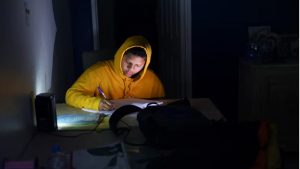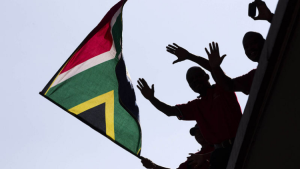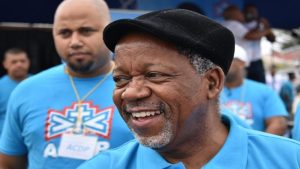As South Africans celebrate Freedom Day, during the nationwide coronavirus lockdown, economic freedom remains a distant reality for many who have fallen through democracy’s cracks.
This is the daily reality for the rural community of Tafelkop, outside Pinetown, in KwaZulu-Natal. They’ve come together to appeal for help for one of their most vulnerable members.
The rural village of Tafelkop lies off the beaten track. Seemingly, far off the main road and yet, ironically within Ward 100 in the eThekwini Municipality.
Homes here are either mud or small thatch-roofed homesteads.
As SABC News’ Minoshni Pillay reports, at a point in their journey to Thulani Cele’s home, they were forced to stop their vehicle and continue on foot. Walking amid long, dry blades of grass across a trickling stream and up a final climb to the modest mudroom of the 50-year-old. The room is hidden entirely by dense bush.
Cele was born in the area but lost both his parents as a child. He’s never been married and lives alone. He’s gotten by with odd jobs in his community.
He says he particularly enjoys toiling away at a community vegetable garden at the local primary school.
“The most difficult thing right now is that I can’t do anything right now. I don’t have anything I can do. I would like to have equipment to help me garden and work. I don’t have the resources. I have to go very far to get water to bring it to the garden. That’s the biggest challenge. I can work on my own and I’ve been asking people for help. I also have a certificate,” he says.
Sitting on the mattress inside his mudroom, Cele points out his basic possessions. A cup and saucer, t-shirts hanging off a line, tattered shoes discarded in a corner and a very rusted tin roof filled with holes.
He collects water from the stream daily. He explains that the lockdown has made it impossible for him to make any money to feed himself.
“This thing has affected me very badly because I have no freedom to move around. I have to stay at home and because of that, life is very difficult. I have never had a stable job. I was working as a packer at CPS. Things were better than they are right now because at least before, I could get to work. The situation right now is very difficult. Things are not the same. Before I could do anything for myself because I could still work.”
The call for help for Thulani comes from a community member, Thobile Cele. She spearheads a local NGO that is working to keep young people off the streets and focused on learning at school and skills development, like the vegetable gardens that Thulani tends.
She is appealing for help to equip him with the right tools to earn a simple living and a proper home to live in.
“I would like him to get a house. Because right now life is difficult for him this is not a house where a human can live. I would also like him to get a place where he can do farming and get resources like garden tools, spades, so that he can make a living. He is very talented and he can farm for himself.”
Thulani Cele says he hasn’t felt free in a long time and that until he’s able to earn a decent living, he’ll never really know what that is.
Lockdown relief measures:
The economic impact of the virus has hit businesses and individuals hard, with many people being left without jobs since the start of the national lockdown.
Below are some economic measures announced by President Cyril Ramaphosa to mitigate the effects of the coronavirus lockdown:

Loading…
In the video below, Social Development Minister Lindiwe Zulu explain the allocation of relief grants for disadvantaged people:






